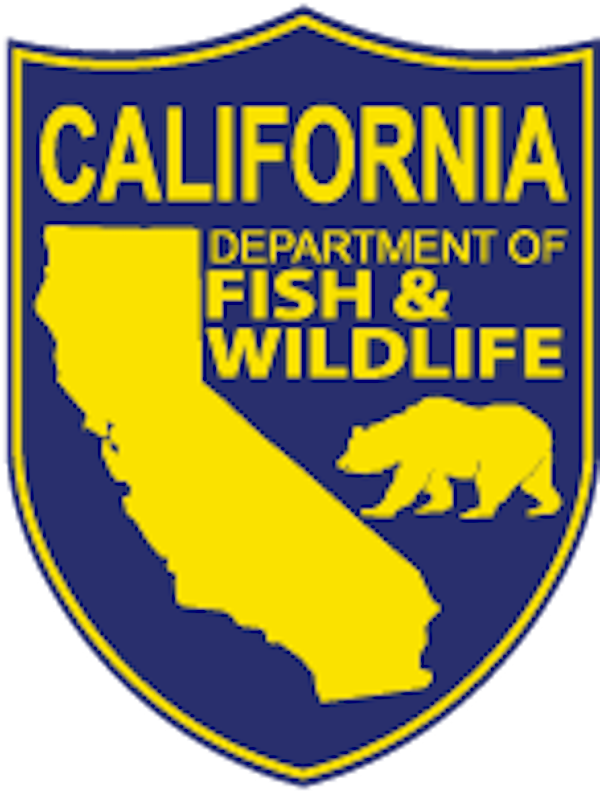Utah Fish Report
Saltwater Fish Report for 7-1-2021
Saltwater Fish Report for 7-1-2021
Invasive Algae Removal Effort in Newport Bay Begins Next Week

by California Department of Fish & Wildlife
7-1-2021
Website
A removal effort will begin next week to eradicate an invasive algae species identified in Newport Bay in March 2021. The algae, which is native to Florida and other subtropical and tropical locales, is scientifically known as Caulerpa prolifera. It can grow quickly and spread easily, choking out native seaweeds and potentially harming marine life through lost habitat.
State, federal, and local agencies joined forces to identify the extent of the algae’s infestation in Newport Bay. California Department of Fish and Wildlife (CDFW) scientists and divers deployed in April and May 2021 to help map the location and extent of the infestation. To help prevent disturbance by boat anchors, boat wakes, divers, or swimmers, the City of Newport Beach is limiting access to the identified infestation area through placement of floating buoys and lines surrounding the area. It is imperative that boaters, kayakers, swimmers and divers avoid the area to prevent unintentional spread of this invasive species.
The State Water Resources Control Board’s Cleanup and Abatement Account is funding removal of the known infestation and pre- and immediate post-removal diver surveys. The pre-removal diver surveys were completed by contracted divers on June 18, 2021. Next week, divers will begin efforts to completely remove Caulerpa prolifera. The removed material will be pumped onshore into a container for separation of algae and solids from the water. The discharge will be handled with great caution to prevent re-introduction of the algae to the bay environment.
Scientific consensus is that immediate steps toward eliminating this invasive algae are needed. The infestation is located within the northern end of the Newport Bay entrance channel at China Cove, which has high tidal water movement. If not eliminated, the algae could spread within the bay and to important marine habitats outside the bay. Caulerpa prolifera and its close relatives in the genus Caulerpa can spread quickly, rapidly out-competing native species, including native eelgrass, and have previously caused significant and expensive damage to coastal waters in California. This species group has also had severe impacts elsewhere, including throughout the Mediterranean and Australia.
In 2000, a related species, Caulerpa taxifolia, invaded Agua Hedionda Lagoon and Huntington Harbor. In 2006, a $7 million, multiagency eradication effort ended in success.
After the removal effort in Newport Bay is complete, divers will conduct surveys immediately following removal and over time to help ensure the species is completely removed and does not repopulate the area. Diver surveys will also occur in surrounding areas, both inside and outside Newport Bay, to determine if other areas have been invaded.
The U.S. Fish and Wildlife Service and National Marine Fisheries Service are providing funding to support the follow-up surveys of priority bay and nearshore areas adjacent to the known infestation location. However, additional funds are required to support follow-up eradication surveys of the infested area and other portions of Newport Bay.
Caulerpa prolifera is a popular and common saltwater aquarium plant. It is bright green and consists of several blades linked by underground runners, which attach to the seafloor with small root-like structures. Although there is significant concern this species could potentially be harmful to native species, there is no danger to humans. However, it is imperative that the public avoid contact with the plant due to its extreme ease of recolonizing from even tiny dislodged fragments. Caulerpa and any other aquarium species should never be released into California waters, even by pouring down storm drains which often discharge to the ocean. To dispose of aquarium plants or animals, freeze them and dispose of them in the garbage. For more information, or if you believe you have seen this invasive algae, please visit the Invasive Algae – Caulerpa prolifera web page to submit a notification to CDFW.
More Reports
Fish Responsibly on Free Fishing Day Saturday July 3

7-1-2021
The first of two 2021 Free Fishing Days in California occurs Saturday, July 3, when no sport fishing license is...... Read More
Chinook Salmon Season to Open July 1 on Portions of Klamath, Trinity Rivers
Trinity River
6-30-2021
Fishing regulations for the spring Chinook fishery in the Klamath River Basin remain in effect following the June meeting of...... Read More

www.UtahFishReports.com © 2026. All Rights Reserved.
Website Hosting and Design provided by TECK.net
Website Hosting and Design provided by TECK.net